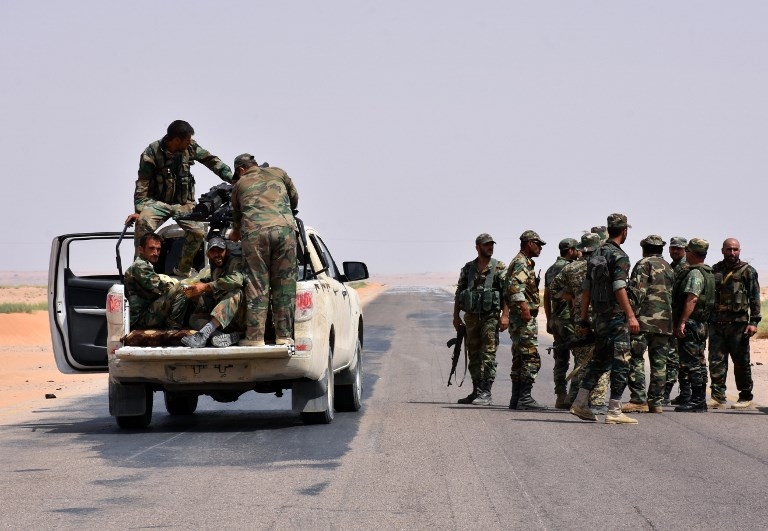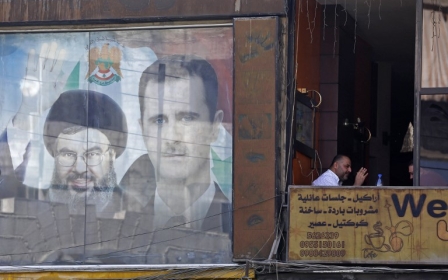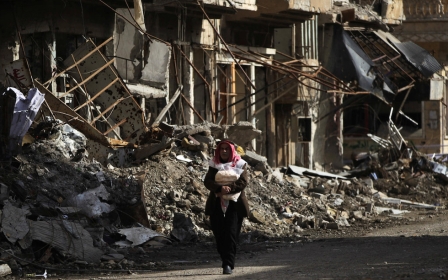US-backed forces and Syrian army separately close in on IS in Deir Ezzor

US-backed Syrian militias have launched an operation against the Islamic State (IS) group in the north of Deir Ezzor province, a statement said on Saturday.
Assaults would aim to drive the militants out of areas they hold north and east of the Euphrates river, close to the Iraqi border, said the statement from the Deir Ezzor Military Council, which is fighting as part of the Syrian Democratic Forces alliance (SDF).
A senior SDF official told Reuters on Friday they would launch attacks from the south of Hassakeh, which is controlled by the Kurdish YPG militia, as part of a wider offensive to drive IS out of Raqqa city and territory to its southeast.
With US-led air cover and special forces on the ground, the alliance of mostly Kurdish and Arab militias is fighting to seize Raqqa, upstream along the Euphrates River.
Spearheaded by the YPG, the SDF says it has taken 65 percent of Raqqa city from IS.
In the Deir Ezzor assault, the SDF would push towards the Euphrates River from the east of the province, which borders Iraq.
The Syrian Observatory for Human Rights monitoring group reported that the SDF had already made advances against IS in Deir Ezzor after fierce clashes and seized several hills and a village in the province's northwestern countryside.
"The first step is to free the eastern bank of the Euphrates and the areas Islamic State still holds," Ahmed Abu Kholeh, head of the Deir Ezzor Military Council, which is fighting as part of the SDF, told Reuters after the announcement.
"We're not specifying a timeframe but we hope it will be a quick operation," he said.
Abu Kholeh would not say whether there were plans to advance on Deir Ezzor city itself. "We don't know how the battles will go after this," he said.
He said SDF fighters did not expect clashes with Syrian government forces as they advance, but if fired upon "we will respond".
Military airport siege broken
Syrian troops on Saturday broke IS’s siege of the Deir Ezzor military airport, state media reported.
State news agency SANA said the breach came "after the forces advancing from the cemetery southwest of the city linked up with the forces holding the airbase".
The troops had launched a new push on Friday towards the besieged military airport, as part of its multi-pronged offensive to retake the whole eastern city from the militants.
The Syrian Observatory for Human Rights also confirmed troops had breached the siege.
"By breaking the siege on the military airport regime forces have been able to link up all the neighbourhoods they hold in western parts of Deir Ezzor city," the Britain-based monitor said.
Oil field recaptured
On Saturday, the Syrian army and allies also recaptured an oil field from IS near the city of Deir Ezzor, state TV reported.
Government forces also seized part of a main highway running from Deir Ezzor down to the city of al-Mayadeen, to which many IS militants have retreated, the Syrian Observatory for Human Rights monitoring group said.
The army and militias fighting alongside it seized the Teym oil field in desert south of the city, state TV said.
The Syrian army reached its enclave in Deir Ezzor city this week, on the western bank of the Euphrates, breaching an IS siege that had lasted three years.
With the help of Russian air power and Iran-backed militias, the advance capped months of steady progress east against IS across the desert.
The eastwards march has on occasion brought the Syrian army and its allies into conflict with US-backed forces.
Still, the rival campaigns have mostly stayed out of each other's way, and the US-led coalition has stressed it is not seeking war with Damascus.
Middle East Eye propose une couverture et une analyse indépendantes et incomparables du Moyen-Orient, de l’Afrique du Nord et d’autres régions du monde. Pour en savoir plus sur la reprise de ce contenu et les frais qui s’appliquent, veuillez remplir ce formulaire [en anglais]. Pour en savoir plus sur MEE, cliquez ici [en anglais].




